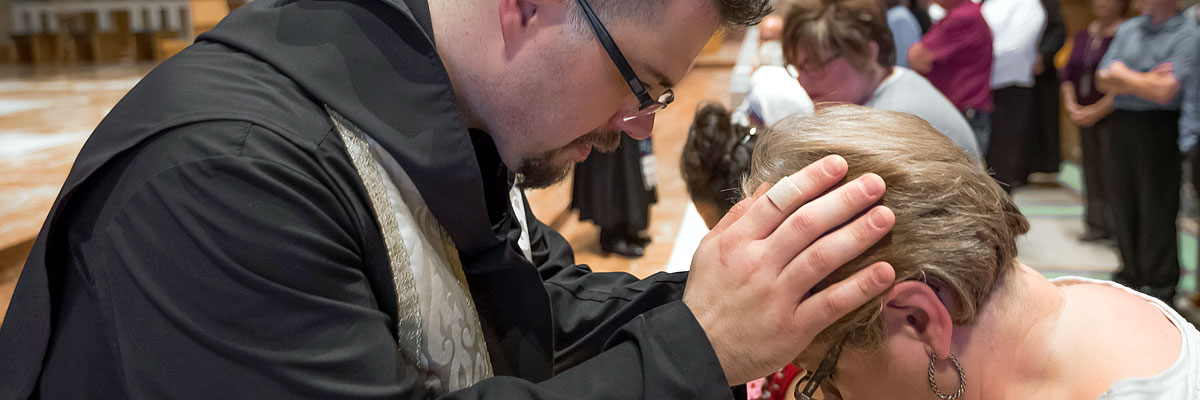Official Website of the
Catholic Diocese of Little Rock
Peter stumbles answering Jesus' call
Published: May 12, 2012
This is the 12th column in a 13-part series
By Clifford M. Yeary
Associate Director, Little Rock Scripture Study
It's not just Catholics who believe Peter was special among the apostles. Many eminent Protestant biblical scholars acknowledge that his significant appearances in the New Testament indicate that he was prominent among the apostles.
Catholics, of course, have always believed that Jesus called Peter to play a special role as leader of the apostles and eventually, as the bishop of Rome, to become a perpetual sign of unity among all the churches founded by the apostles. He was, indeed, entrusted by Jesus with the keys to the kingdom of heaven (Matthew 16:19).
 While the book of Acts portrays Peter as a bold leader and courageous proclaimer of the Gospel after he is filled with the Holy Spirit, when we study the Apostle Peter in the Gospels and elsewhere, an interesting inconsistency emerges concerning his character.
While the book of Acts portrays Peter as a bold leader and courageous proclaimer of the Gospel after he is filled with the Holy Spirit, when we study the Apostle Peter in the Gospels and elsewhere, an interesting inconsistency emerges concerning his character.
Peter was often impetuous and unreliable — by Paul's account, even long after Pentecost (Galatians 2:11-12). While he was someone always eager to say the right words or to commit to the right thing, his follow through all too often lacked courage or real understanding. From the very beginning, it seems, Peter himself was aware of his shortcomings. When Peter had not yet left fishing behind to follow him, Jesus came to Peter, asking him to let him teach the crowds on shore from Peter's boat.
When he finished his teaching Jesus told Peter to lower his nets for a catch. Although Peter had been fishing all night without success he acquiesced because it was Jesus asking him. His haul was nothing short of miraculous, but Peter begged Jesus to leave him: "Depart from me, Lord, for I am a sinful man" (Luke 5:1-11). Already we can see that Jesus was calling Peter to be a great fisher of souls, but Peter himself did not change so quickly.
Peter's profession of faith in Jesus, that, "You are the Messiah, the Son of the living God," is an act of faith inspired by the Holy Spirit in Matthew (16:16-19), for which Jesus rewards him with the keys to the kingdom of heaven. Peter's same profession of faith in Mark's Gospel (8:29-33), however, says nothing in praise of Peter. It is immediately followed by Peter's refusal to accept that Jesus' must die on the cross. Peter doesn't know what being the Messiah means to Jesus, and instead of praising his faith, Jesus calls Peter "Satan"! He has become an opponent of his mission.
Matthew is not shy about showing Peter's impetuosity either. Peter asks Jesus to allow him to walk upon the waters with him. Jesus bids him, "Come." Peter steps out on faith and walks a few steps on the water, but when he sees the waves, he immediately starts to sink. Rescued by Jesus, he is asked "Why did you doubt?" (14:22-31) John's Gospel is perhaps the most telling of all in its depiction of Peter. On the evening Jesus is betrayed, following the last supper, Jesus humbles himself before his disciples and prepares to wash their feet. Peter resists, apparently because such an act is too demeaning for Jesus to perform (13:1-9).
His misjudgments that fateful evening will only accumulate. He will insist that he is willing to die for Jesus and will never betray him (13:36-38). When Judas and a band of soldiers come to arrest Jesus, Peter draws a sword and attacks a slave of the high priest, cutting off his ear (18:1-11), once again standing between Jesus and the cross.
While Jesus is being interrogated, Peter, afraid for his own skin, denies even knowing Jesus three times (18:15-18; 25-27). It is also in John, however, that we see Peter's reconciliation with Jesus following the resurrection, when, after deciding to return to fishing for a living (21:3), Jesus calls on him three times to surrender his own life in the cause of feeding Jesus' sheep (21:15-19).
When we examine the Scriptures concerning Peter's character, what emerges is not a discrediting of the great apostle, but rather the welcome discovery that Jesus called Peter to great responsibility in spite of his flaws. Every Christian has an important calling from Christ, and which one of us is without flaw?
Study Questions
- What significant differences do you find between Peter's profession of faith in Matthew (16:13-23) and the one in Mark (8:27-33)?
- What fault did Paul find in Peter (Cephas) that he tells the Galatians (2:11-12)?
- How would you describe Peter's character? Why would Jesus choose someone like Peter to lead his Church?
- How accepting are we of character flaws in either church or civil leaders?
This article was originally published in Arkansas Catholic May 12, 2012. Copyright Diocese of Little Rock. All rights reserved. This article may be copied or redistributed with acknowledgement and permission of the publisher.









